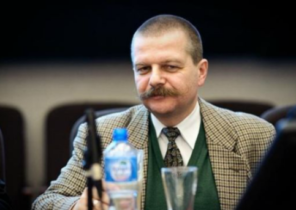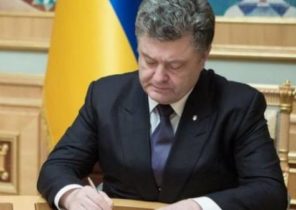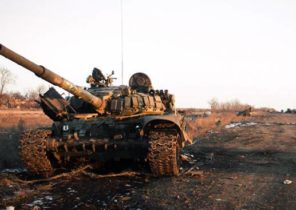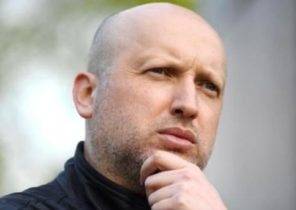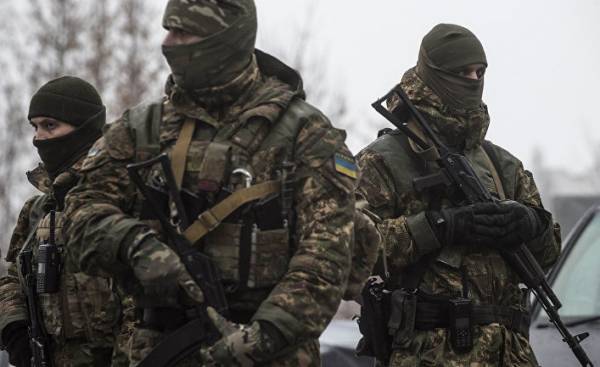
Russia has not abandoned its goal to maintain a degree of control over the Ukraine — which is the main priority of the expansionist geopolitical strategy of the Kremlin in Eurasia — and obviously does not exclude the possibility of achieving this goal through war. In this regard, Russia continues to build up the concentration of army units along the Ukrainian border, including through the creation of four new divisions: the 150th motorized rifle division in the Rostov region, the 10th Panzer and 3rd motorized rifle divisions in the Voronezh region and the 144-th infantry division near Smolensk. These units will be deployed in 50, 45 and 255 kilometers from the Ukrainian border, respectively.
Also, from Moscow to Voronezh, i.e., close to Ukraine, were transferred and the headquarters of the Russian 20th army. In addition, in the Rostov region has entered a new 8th army. Moreover, 9th, 23rd, and 28th motorized rifle division previously stationed in the Central part of Russia near the border with Kazakhstan and in the Volga region, is also transferred to the West — in the Belgorod, Bryansk and Voronezh oblast. They are now based within 50 kilometers from the border with Ukraine.
Such a movement of troops is very dangerous, as obviously not is defensive in nature. Ukraine is not able to conduct offensive operations, even on its own territory, and Russia already has a serious superiority in force along the border. Therefore, the Kremlin’s actions are offensive, and the fact that he’s wasting such large funds, despite the budget crisis, indicates Moscow’s willingness to undermine the sovereignty of Ukraine by all available means.
Another indicator of the intentions of Moscow’s ongoing propaganda campaign against Kiev. The campaign intensified after Euromedinukas revolution in Ukraine, when Putin personally supported the idea of “new Russia”, which, according to the vision of the Kremlin, was to include eight Eastern and southern regions of Ukraine, excluding Crimea.
Moscow continues to promote the idea that Ukraine will inevitably soon fall apart into several parts: “Russian” Eastern and southern region, a buffer territory in Central (including Kiev), a separate Western Ukraine (controlled by the nationalists or Poland) and a number of small territories which depart Hungary and Romania.
Simultaneously, Russia is trying to isolate Ukraine, methodically trying to play off her allies and neighbors. In particular, one objective is Poland, where the Russian army of Internet trolls is an information war in order to reopen historical grievances between poles and Ukrainians. Similar campaigns are held in Hungary and Slovakia.
Also the Arsenal of the Kremlin includes cyberwarfare. According to the Ukrainian government, in November and December of 2016 Russia made 6,5 thousand cyber attacks against various Ukrainian authorities, including the ministries of defence and Finance and Treasury. Hackers also attacked a power substation in Kiev, which led to blackouts in some areas of the Ukrainian capital. The first known case of outages due to cyber attacks had happened a year earlier when Russian hackers caused a failure in the power system operation in the Western part of Ukraine in December 2015.
The ultimate goal of these attacks is still unclear, because what is happening because of them sporadic failures are quickly eliminated. When such attacks are part of a massive military offensive, as it was during Russia’s war with Georgia in August 2008, they are able to distract the enemy and lead him into confusion. But in Ukraine, where the confrontation in the East is smoldering for more than two years, cyber attacks do not directly affect the course of the conflict. The most logical explanation is that Russia may tries his hand and is looking for vulnerabilities in Ukraine in preparation for a wider war in the future.
All these signs point to a worrisome scenario, especially in the medium and long term.
The Russian attack in the near future seems unlikely for three reasons. First, it is not yet finished regrouping. Second, the Kremlin hopes that the results of the upcoming elections in France (April and may) and Germany (in September) will weaken the resistance of the EU to Russian expansionism. If Russia got aggressive before the election, it could ruin everything, strengthening the position is disadvantageous to the Kremlin candidates. Thirdly, Moscow would prefer to first establish a relationship with the administration of the trump in the hope that this will alleviate the subsequent reaction in Washington to Russian aggression in Ukraine.
But next year, the risks for Ukraine are significantly increased. Russia is more prepared for a massive attack. Putin’s regime might also find it necessary to wage an aggressive war to distract the Russian population from deterioration of the financial, economic and social conditions within the country.
What position the US and the EU will take a year, can be decisive. If Moscow decides that they probably will not actively oppose Russian aggression, the chances of a major war in Ukraine will increase. Approaches to the administration of the tramp and European governments to Moscow will be of great importance to the stability and sovereignty of Ukraine.
David Batashvili is an analyst in international relations. He was a member of the security Council of Georgia 2008-2013.



